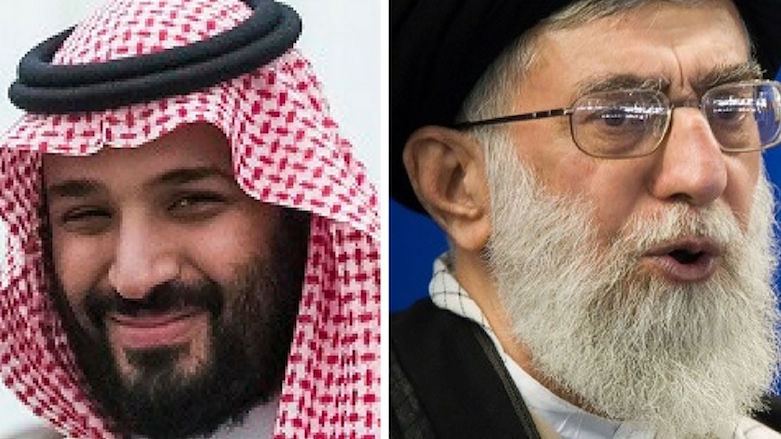Saudi Crown Prince calls Iran's Supreme Leader 'new Hitler of Middle East'

ERBIL, Kurdistan Region (Kurdistan 24) - Saudi Arabia’s crown prince called Iran’s supreme leader the “new Hitler of the Middle East,” intensifying the war of words between the two rival Muslim powers.
Mohammed bin Salman, who is also Saudi defense minister, suggested the Islamic Republic’s expansion under Ayatollah Ali Khamenei needed to be confronted.
“But we learned from Europe that appeasement doesn’t work. We don’t want the new Hitler in Iran to repeat what happened in Europe in the Middle East,” the New York Times quoted him.
The confrontation with Iran comes among his sweeping cultural reforms and systemic purges.
Iran and Saudi as arch-rival Shia and Sunni countries support opposite sides in political fronts and wars in the Middle East.
Saudi Arabia is also a US ally eager to work with the new US President Donald Trump to “contain” Iran.
The relations between the Muslim rivals have been escalating since early November when a missile attack on Riyadh airport was thwarted.
Saudi Crown Prince responded that Iran's act of supplying missiles to rebels in Yemen was a "direct military aggression."
State media quoted Mohammed bin Salman bin Abdulaziz having told UK Foreign Secretary Boris Johnson in a telephone conversation.
The prince said Iranian regime is at fault for "supplying its Houthi militias [in Yemen] with missiles," a claim that Iran refuses.
Houthi-aligned media said that the rebels had fired a Burkan H2 ballistic missile at King Khaled International Airport, which is 850km (530 miles) from the Yemeni border and 11km north-east of Riyadh.
Saudi missile defenses intercepted the missile in flight, but some fragments fell inside the airport area.
Human Rights Watch said the launch of an indiscriminate missile at a predominantly civilian airport was a war crime.
The Saudi government has in the past accused Iran of having proxies in Yemen and Lebonan.
Iran sponsors Lebanese Hezbollah, the Shia militant and political group that holds tremendous sway in the Cabinet and as part of a pro-Syrian alliance in the Lebanese parliament.
Saad Hariri, a Sunni politician with Saudi backing, blamed Iran and Hezbollah for meddling in "the internal affairs of Arab countries" when he announced that he was resigning as prime minister of Lebanon, a decision he later reversed.
"Iran controls the region and the decision-making in both Syria and Iraq," Hariri said in his announcement. "I want to tell Iran and its followers that it will lose in its interventions in the internal affairs of Arab countries."
Saudi minister for Gulf affairs Thamer al-Sabhan also equated Hezbollah with the Lebanese government, adding Hezbollah "has become a tool of death and destruction against Saudi Arabia and participates in all terrorist acts in the Kingdom," the minister claimed.
Saudi Arabia has waged a years-long military campaign in Yemen in support of the internationally-recognized government that was driven out of the capital by the Houthis.
"Who are the Houthi's and what are Hezbollah? They are subsidies of the Iranian Revolutionary Guard," Saudi Foreign Minister Adel Al-Jubair said.
Diplomatic relations between Iran and Saudi Arabia have been tense since the 1979 Islamic Revolution, though there have been occasional thaws between the two rivals.
